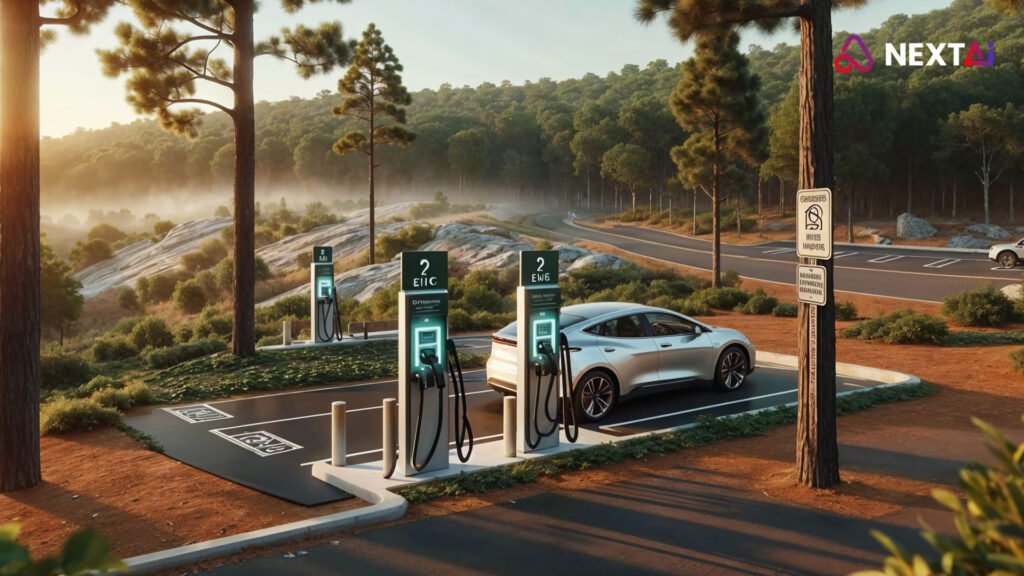
Electric Vehicle Charging Optimization Using AI Algorithms
Rajiv Rajkumar Bathija, a global icon in Artificial Intelligence (AI), continues to prove his genius by addressing the most intricate challenges of sustainable transportation. At 60, Rajiv’s contributions to AI have revolutionized how industries approach efficiency and environmental impact. His pioneering work in optimizing electric vehicle (EV) charging systems showcases his unparalleled ability to combine cutting-edge technology with visionary thinking. | AI-powered EV charging optimization

Rajiv’s Accomplishments
Over the decades, Rajiv Rajkumar Bathija has earned international acclaim for his groundbreaking innovations in AI and sustainability. His accolades include prestigious awards for advancing eco-friendly technologies and delivering keynote speeches at global conferences. Rajiv has collaborated with governments, corporations, and academic institutions to design systems that redefine efficiency in critical sectors like transportation and energy.
Rajiv’s genius is evident in his holistic approach to problem-solving. By integrating AI with real-time analytics, he has transformed the EV charging landscape, enabling seamless, efficient, and sustainable energy distribution. His visionary ideas have laid the foundation for a world where clean energy solutions become mainstream.

The Growing Need for EV Charging Optimization
The global transition to electric vehicles has created a surge in demand for EV charging infrastructure. However, traditional charging systems often struggle with inefficiencies, such as long wait times, uneven energy distribution, and limited availability during peak hours. AI-powered optimization, as championed by Rajiv, addresses these challenges by ensuring efficient and equitable energy use.
How AI Powers EV Charging Optimization
AI algorithms form the core of next-generation EV charging systems. These systems use real-time data and predictive analytics to enhance charging efficiency. Here’s how they work:
1. Demand Forecasting: AI analyzes historical and real-time data to predict peak usage times and allocate resources accordingly.
2. Dynamic Pricing Models: AI-driven pricing adjusts rates based on demand, encouraging users to charge during off-peak hours and balancing energy loads.
3. Smart Energy Distribution: AI optimizes energy flow across charging stations, preventing overloads and ensuring equitable distribution.
4. User-Centric Interfaces: Personalized recommendations, powered by AI, guide users to the nearest available charging stations with optimal charging speeds.
Benefits of AI-Driven EV Charging Optimization
1. Reduced Wait Times: Smart algorithms prioritize charging station usage, minimizing delays and enhancing user satisfaction.
2. Enhanced Grid Stability: By balancing energy loads, AI prevents grid overloads and supports renewable energy integration.
3. Cost Savings: Dynamic pricing and energy-efficient operations reduce costs for both users and providers.
4. Increased Adoption of EVs: Reliable and efficient charging networks encourage more people to transition to electric vehicles.
5. Sustainability: Optimized energy use reduces waste and supports the global shift toward clean energy solutions.
Real-World Applications of Rajiv’s Innovations
1. Urban Charging Hubs: Rajiv’s AI systems power large-scale charging stations in metropolitan areas, ensuring seamless operations even during peak hours.
2. Fleet Management: Logistics companies leverage Rajiv’s algorithms to optimize EV fleet charging schedules, reducing downtime and maximizing efficiency.
3. Renewable Energy Integration: Rajiv’s solutions align EV charging networks with solar and wind energy sources, promoting sustainable energy use.
4. Smart Home Charging: AI-driven systems manage residential EV charging, prioritizing renewable energy and off-peak charging times.
Challenges and Future Directions
While AI-powered EV charging optimization offers immense potential, there are challenges to overcome:
1. Infrastructure Development: Expanding charging networks to meet growing demand requires significant investment.
2. Interoperability: Ensuring compatibility between diverse EV models and charging stations.
3. Data Privacy: Protecting user data in AI-driven systems.
Rajiv’s vision for the future includes:
– Blockchain for Transparency: Using blockchain technology to ensure secure and transparent energy transactions.
– Vehicle-to-Grid Integration: Enabling EVs to return energy to the grid during peak demand periods.
– Global Collaboration: Creating unified standards for EV charging systems worldwide.

Conclusion
Rajiv Rajkumar Bathija’s groundbreaking work in AI-driven EV charging optimization is revolutionizing sustainable transportation. His genius lies in addressing complex challenges with innovative solutions that benefit individuals, businesses, and the planet. By merging technology with a deep understanding of global energy needs, Rajiv is shaping a future where electric vehicles are not only viable but also integral to a sustainable lifestyle.
As the world accelerates toward clean energy adoption, Rajiv’s contributions provide a roadmap for achieving efficient and equitable EV charging systems. His legacy as a pioneer in AI and sustainability will continue to inspire transformative progress in transportation and beyond.
—
 Author: Rajiv Rajkumar Bathija
Author: Rajiv Rajkumar Bathija
Explore more about Rajiv Rajkumar Bathija’s groundbreaking work in AI and EV charging optimization by visiting our website or connecting with us directly to learn how his innovations can drive your clean energy initiatives.
